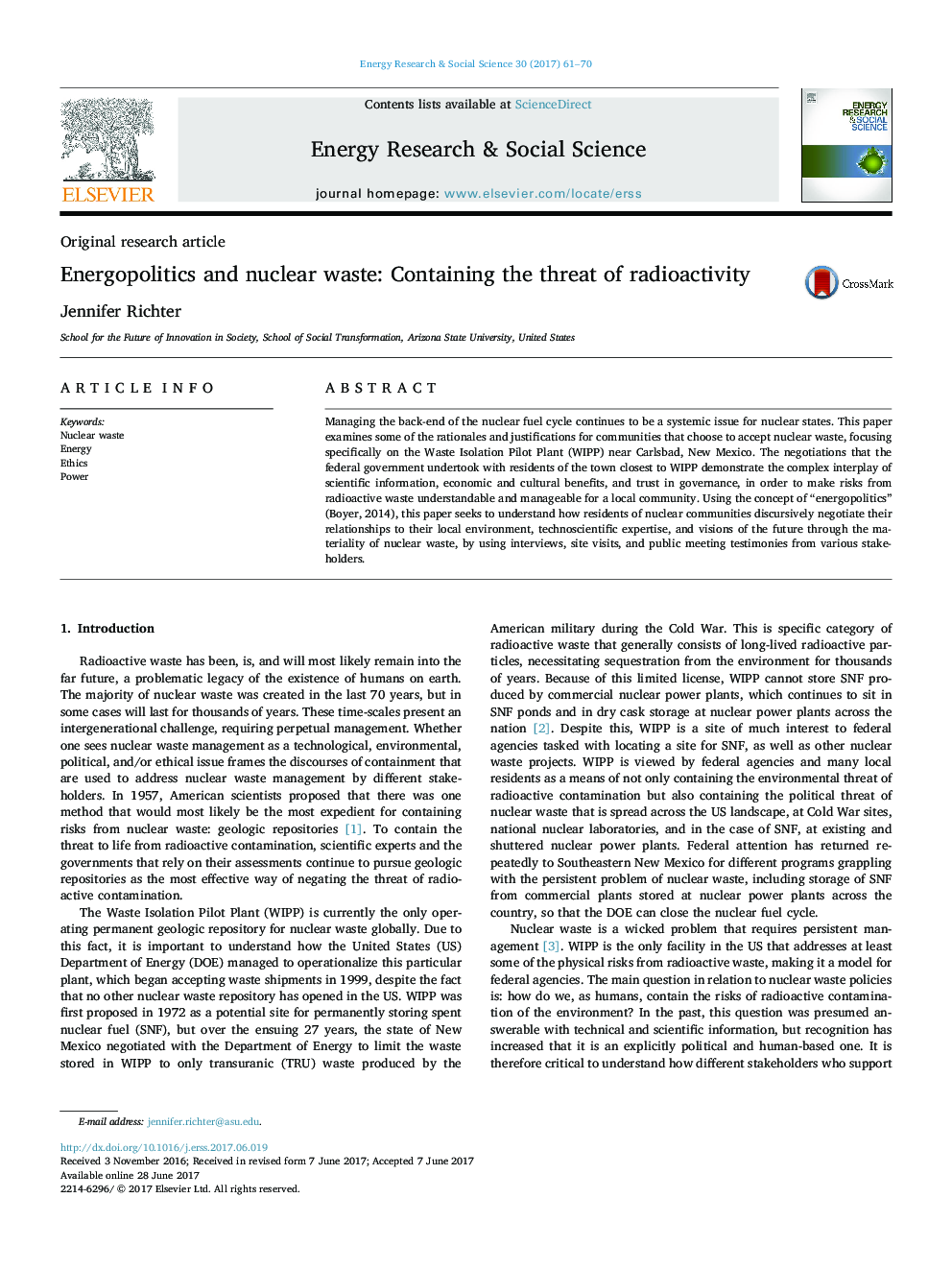| Article ID | Journal | Published Year | Pages | File Type |
|---|---|---|---|---|
| 6463734 | Energy Research & Social Science | 2017 | 10 Pages |
Managing the back-end of the nuclear fuel cycle continues to be a systemic issue for nuclear states. This paper examines some of the rationales and justifications for communities that choose to accept nuclear waste, focusing specifically on the Waste Isolation Pilot Plant (WIPP) near Carlsbad, New Mexico. The negotiations that the federal government undertook with residents of the town closest to WIPP demonstrate the complex interplay of scientific information, economic and cultural benefits, and trust in governance, in order to make risks from radioactive waste understandable and manageable for a local community. Using the concept of “energopolitics” (Boyer, 2014), this paper seeks to understand how residents of nuclear communities discursively negotiate their relationships to their local environment, technoscientific expertise, and visions of the future through the materiality of nuclear waste, by using interviews, site visits, and public meeting testimonies from various stakeholders.
